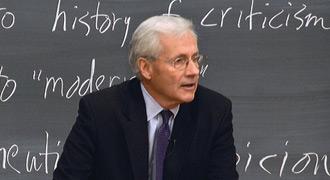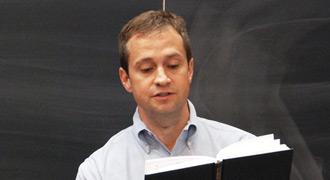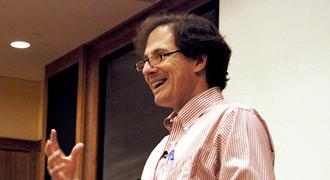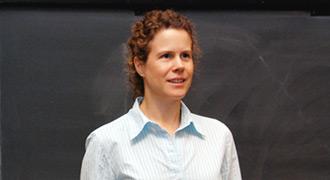The Department of English at Yale teaches the majority of freshmen in Yale College and graduates more than 100 English majors in every Yale class. Undergraduate courses are designed to develop students' understanding of important works of English, American, and other literatures in English and to provide historical perspectives from which to read and analyze these works. At the graduate level, the department offers a broad range of courses that engage all the traditional chronological periods of British literature, American literature since its inception, and many of the contemporary interdisciplines. Learn more at http://www.yale.edu/english

Introduction to Theory of Literature
This is a survey of the main trends in twentieth-century literary theory. Lectures will provide background for the readings and explicate them where appropriate, while attempting to develop a coherent overall context that incorporates philosophical and social perspectives on the recurrent questions: what is literature, how is it produced, how can it be understood, and what is its purpose?

Milton
This class is a study of Milton's poetry, with attention paid to his literary sources, his contemporaries, his controversial prose, and his decisive influence on the course of English poetry. Throughout the course, Professor Rogers explores the advantages and limitations of a diverse range of interpretive techniques and theoretical concerns in Milton scholarship and criticism. Lectures include close readings of lyric and epic poetry, prose, and letters; biographical inquiries; examinations of historical and political contexts; and engagement with critical debates.

Modern Poetry
This course covers the body of modern poetry, its characteristic techniques, concerns, and major practitioners. The authors discussed range from Yeats, Eliot, and Pound, to Stevens, Moore, Bishop, and Frost with additional lectures on the poetry of World War One, Imagism, and the Harlem Renaissance. Diverse methods of literary criticism are employed, such as historical, biographical, and gender criticism.

The American Novel Since 1945
In "The American Novel Since 1945" students will study a wide range of works from 1945 to the present. The course traces the formal and thematic developments of the novel in this period, focusing on the relationship between writers and readers, the conditions of publishing, innovations in the novel's form, fiction's engagement with history, and the changing place of literature in American culture. The reading list includes works by Richard Wright, Flannery O'Connor, Vladimir Nabokov, Jack Kerouac, J. D.